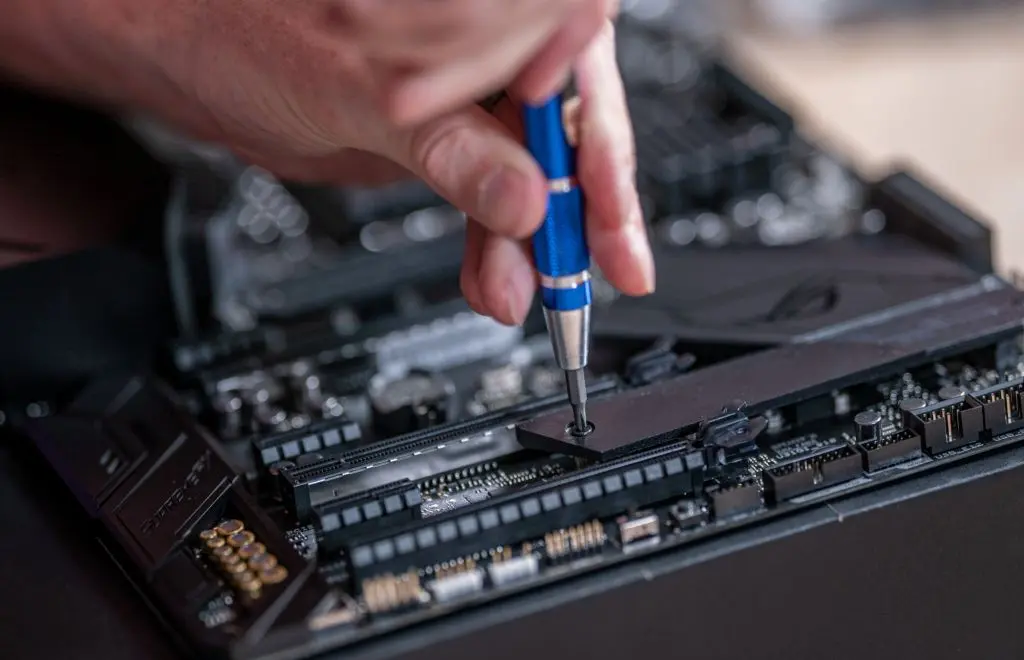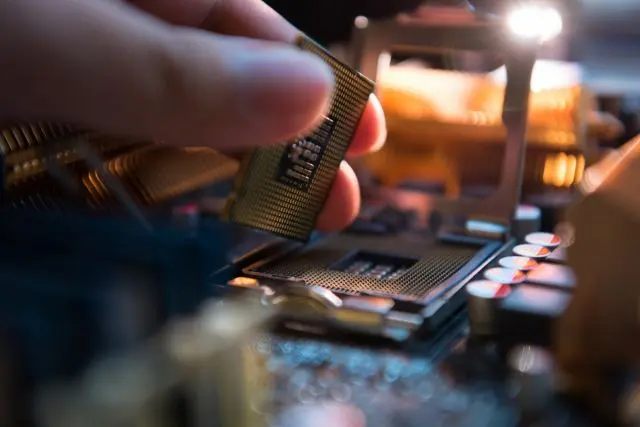Enhance PC speed by updating key components like processor, RAM, storage, and graphics card. Ensure compatibility for stability. Choose top-notch parts that fit your needs and budget. Opt for SSD upgrades for faster boot times and improved responsiveness. Follow manufacturer’s guidelines for successful installations. Resolve compatibility issues for a smooth upgrade process. Improve cooling solutions, future-proofing, and monitor system health for peak performance. Fine-tune hardware upgrades to unleash your PC’s full potential.
Key Takeaways
- Upgrade components like processor, memory, storage, and graphics card to boost system speed and efficiency.
- Confirm compatibility to prevent system instability and maximize performance.
- Carefully choose high-performance components with a balance of price and specifications.
- Consider SSD upgrades for faster boot times, improved responsiveness, and enhanced multitasking.
- Overcome installation challenges by following instructions, backing up data, and addressing obstacles for successful upgrades.
Understanding PC Hardware Upgrades
Understanding PC hardware upgrade tips and considerations is vital for optimizing system performance and achieving seamless functionality for your computer. Upgrades involve improving components like the processor, memory, storage, and graphics card. By selecting compatible hardware and following proper installation procedures, users can boost their system’s speed, storage capacity, and overall efficiency. These upgrades guarantee that your PC keeps up with the demands of modern software and applications.
Importance of Compatibility Checks
To guarantee a successful PC hardware upgrade, confirming compatibility between new components and existing hardware is important for smooth integration and peak performance. Ensuring that the new hardware is suitable with the motherboard, power supply, and other components will prevent issues such as system instability, performance bottlenecks, or even hardware damage. Compatibility checks are vital to maximize the efficiency and longevity of your upgraded PC system.
Choosing the Right Components
Assembling a high-performance PC requires a careful selection of components. The Component Compatibility Guide can aid in ensuring that the chosen parts work seamlessly together. It is vital to strike a balance between performance and price to maximize the value of the hardware upgrades.

Component Compatibility Guide
Exploring the wide range of PC hardware components can be a challenging task, requiring thoughtful consideration of compatibility to guarantee peak performance. When selecting components, make sure they are compatible with your motherboard, power supply, and other hardware. Check for factors like socket type, form factor, and power requirements to avoid compatibility issues. Researching and understanding specifications is vital to building a reliable and high-performing system.
Performance Vs. Price
When optimizing a PC build, striking the delicate balance between performance and price is crucial for selecting the most suitable components.
- Consider the performance requirements of your tasks
- Evaluate the cost-effectiveness of components
- Research for components with the best performance-price ratio
Benefits of SSD Upgrades
Efficiency and speed are paramount in the digital realm, making the benefits of SSD upgrades a vital consideration for enhancing PC performance. Solid State Drives (SSDs) offer faster boot times, quicker application loading, and improved overall system responsiveness. With no moving parts, SSDs are more durable and energy-efficient than traditional hard drives, providing a reliable storage solution for increased productivity and seamless multitasking.
Overcoming Installation Challenges
To guarantee a successful hardware upgrade process, it is vital to address and overcome any installation challenges that may arise.
- Confirm compatibility between new hardware and existing components.
- Follow manufacturer’s instructions carefully.
- Backup important data before proceeding with the upgrade.
Maximizing RAM Performance
When aiming to maximize RAM performance, two key points come into play: the importance of RAM velocity and the potential benefits of upgrading RAM capability. The velocity of RAM directly impacts the rate at which data can be accessed and processed, influencing overall system performance. Increasing the RAM capability allows for more data to be stored and accessed simultaneously, potentially reducing bottlenecks and enhancing the efficiency of various applications and processes.
RAM Speed Importance
Maximizing RAM performance entails understanding the significance of RAM velocity in enhancing overall system efficiency and responsiveness.
- Faster data processing: Higher RAM speed allows for quicker data retrieval and processing.
- Improved multitasking: Quicker RAM speed facilitates smoother multitasking performance.
- Enhanced gaming experience: Higher RAM speed contributes to better gaming performance with reduced lag times.
Upgrading RAM Capacity
Transitioning from discussing the importance of memory speed, upgrading the memory capacity is a key strategy in optimizing system performance and responsiveness. Increasing RAM capacity allows for more data to be stored temporarily, reducing the need for constant data fetching from slower storage drives. This upgrade can lead to smoother multitasking, faster loading times, and improved overall system efficiency, especially when running memory-intensive applications.
Optimizing Cooling Solutions
To improve system performance and prevent overheating, optimizing cooling solutions is vital for efficient PC operation.
- Regularly clean dust buildup from fans and heatsinks.
- Consider upgrading to more efficient aftermarket CPU coolers.
- Guarantee proper airflow within the PC case by managing cable clutter effectively.
Future-Proofing Your PC
Future-proofing your PC involves strategic upgrades to guarantee top-notch performance over time. Long-term compatibility strategies are essential in staying ahead of the constantly changing technology curve. By considering future performance needs and compatibility, you can make educated choices to extend the lifespan of your PC system.
Upgrading for Future Performance
Attaining ideal long-term performance through strategic upgrades is important to ensure your PC stays efficient and effective.
- Invest in high-quality components.
- Consider compatibility with upcoming technologies.
- Opt for scalable upgrades to accommodate future advancements.
Long-Term Compatibility Strategies
Ensuring your computer stays adaptable to upcoming technological advancements is a strategic approach to sustaining long-term efficiency and effectiveness. By investing in components with long-term compatibility, such as motherboards with multiple PCIe slots for future expansion or CPUs with support for upcoming instruction sets, you can future-proof your PC. Ensuring your system can adapt to evolving technologies will empower you to maximize performance and functionality over time.
Enhancing Graphics Card Performance
Improving the performance of your graphics card is crucial for optimizing your PC’s visual capabilities and overall system efficiency.
- Update graphics card drivers regularly
- Overclock the graphics card within safe limits
- Consider upgrading to a more potent graphics card for improved performance
Monitoring System Health
To ensure the longevity and peak performance of your PC, monitoring system health is vital, providing insights into the overall well-being of your hardware components. By tracking temperatures, voltages, and fan speeds, you can identify potential issues before they escalate, ensuring the best system operation. Utilizing monitoring software can offer real-time data and alerts, allowing for proactive maintenance and timely interventions to maintain your PC’s health.
Frequently Asked Questions
Can I Upgrade My PC Hardware Without Any Technical Knowledge?
Upgrading PC hardware without technical knowledge can be challenging. Seek professional guidance to e compatibility and proper installation. Understanding hardware specifications and following step-by-step instructions can help simplify the process for non-technical users.
Are There Any Risks Involved in Upgrading PC Hardware?
Upgrading PC hardware carries built-in risks such as compatibility issues, data loss, and warranty voiding. Careful research, following manufacturer guidelines, and backing up data can reduce these risks. Professional assistance may be advisable for complex upgrades.
How Can I Determine if My Current Components Are Compatible With Potential Upgrades?
To determine compatibility for potential PC hardware upgrades, scrutinize specifications like socket type, power requirements, and form factor. Refer to manufacturer guidelines and consult online resources for detailed comparisons. Accurate assessment guarantees seamless integration and top-notch system performance.
What Are the Benefits of Upgrading to an Ssd?
Upgrading to an SSD provides faster boot times, improved overall system responsiveness, and boosted data transfer speeds. This upgrade can significantly enrich user experience by reducing load times, increasing productivity, and extending the lifespan of the hardware.
How Can I Ensure My PC Remains Future-Proof After Upgrading Its Hardware?
To guarantee your PC remains future-proof after upgrading its hardware, concentrate on selecting components with longevity, compatibility, and scalability. Invest in high-quality parts, consider future software requirements, and stay updated on industry trends for top-notch performance sustainability.
Conclusion
In e, optimizing PC performance through strategic hardware upgrades is essential for achieving peak efficiency and productivity. By selecting the right components, ensuring compatibility, and overcoming installation challenges, users can improve their computing experience significantly. Upgrading to SSDs, improving cooling solutions, and future-proofing systems are all c steps in maximizing PC performance. By following these tips and considerations, individuals can unlock the full potential of their hardware and experience a noticeable boost in speed and functionality.
You may also like to read:
How Smart Kitchens Improve Your Home’s Overall Efficiency and Lifestyle
